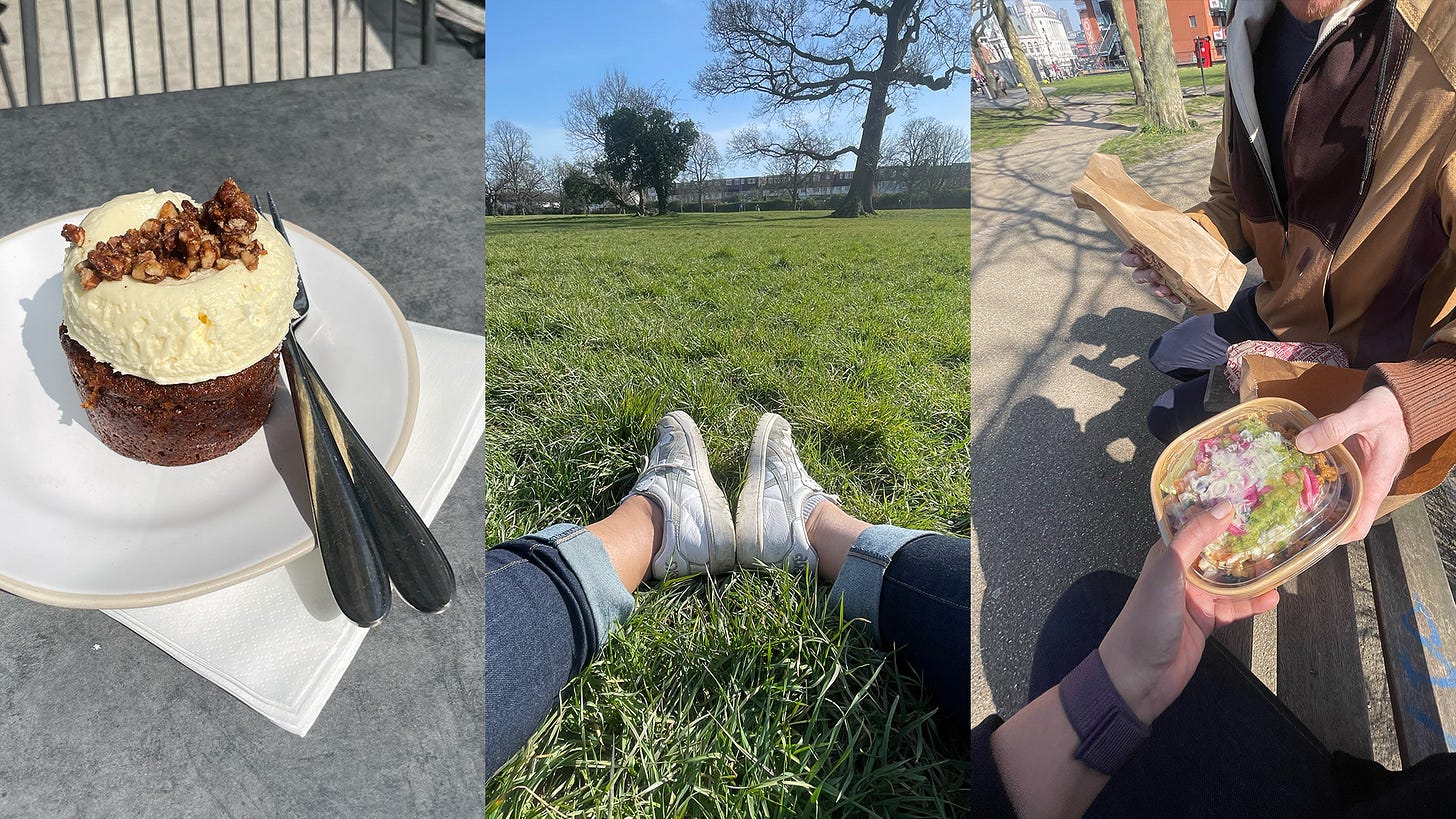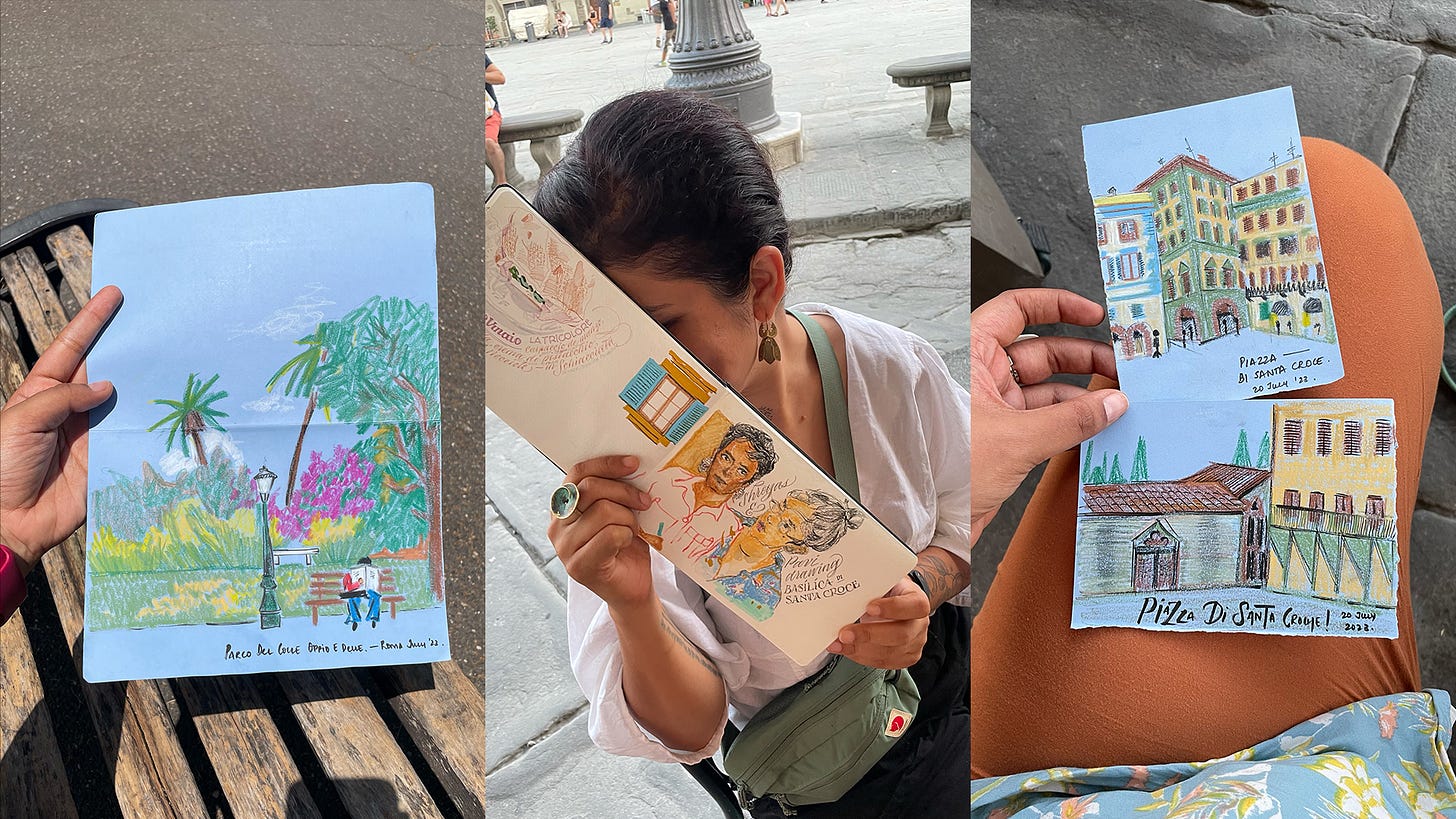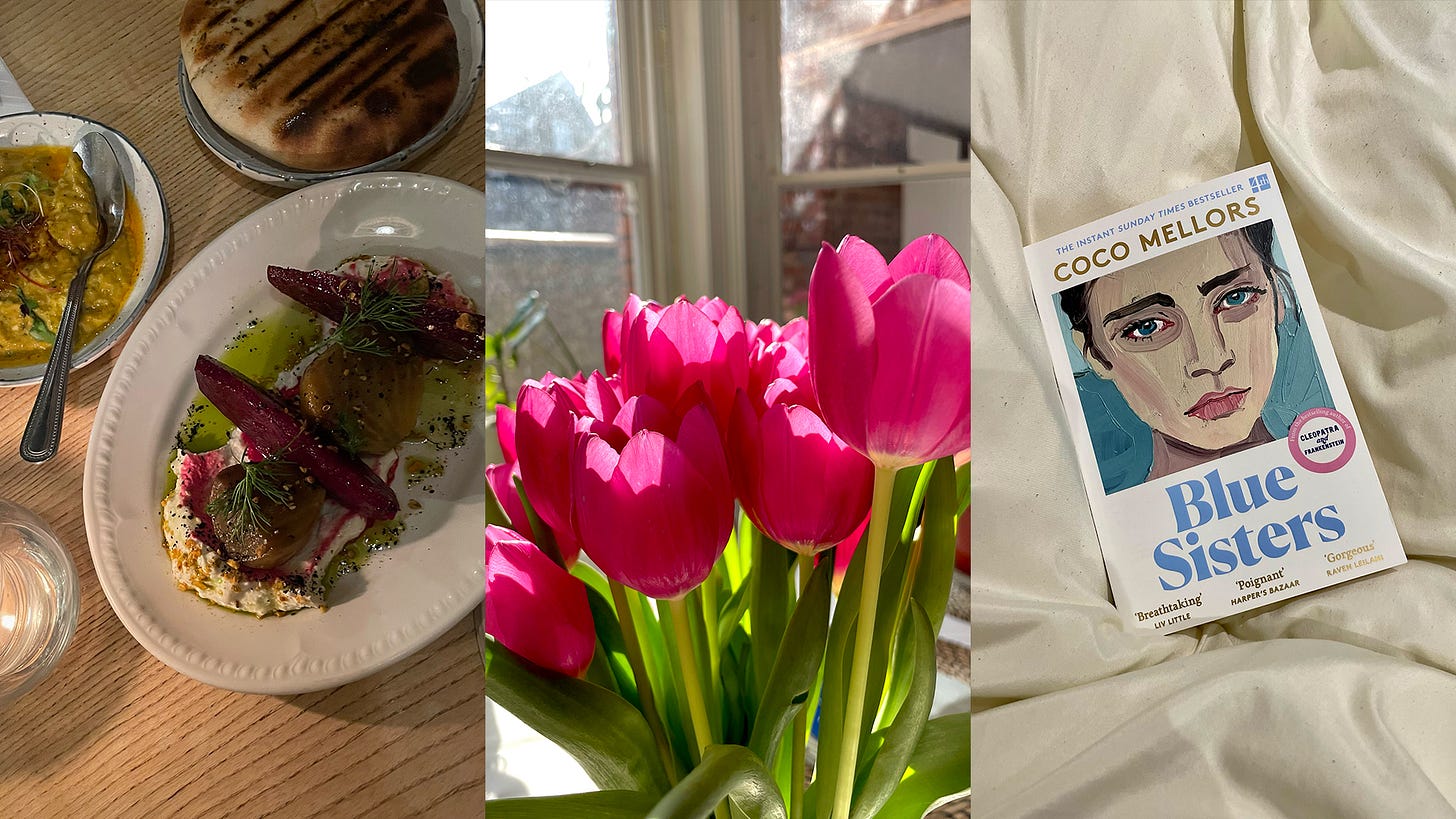I’m both a morning person and a slow morning person. Also, an avoid me before my coffee morning person, but I digress.
Slow mornings are how I’ve chosen to live my adult life, even though I was raised in one of the fastest and most densely populated cities in the world. Mumbai’s morning rush hour is unbelievably fast. Nobody stops. Literally. I was one of those rush-hour people for many years and then I discovered that I can be a slow morning person and well I guess, there is no going back. Slow mornings for me include brewing a cup of coffee, preferably in silence — a ritual I find both sacred and deeply reminiscent of my mother’s routine. She would wake up earlier than everyone else, just to have the first hour of silence to herself before the chaos took over the household. Old generational habits die hard.
Living in cities means that “fast” becomes a way of life. But does it have to be? Why do we have to sprint through life when we could also walk-run the whole thing? Smell the roses. Hear the birds chirp. Eat a chocolate and actually enjoy it. Just sit still, maybe. Slow down. We have only one life. If we rush through it just to get from one place to another, do we even breathe a full breath? I don’t think so. I mean, I didn’t. Maybe I still don’t fully.
When my best friend and I took sabbaticals at the same time, I went on to study and have an even busier sabbatical (no surprises!). Meanwhile, she used her time to go on holiday and become an afternoon nap person. I don’t think I even know how to afternoon nap. I mean, I haven’t tried. And this, despite the fact that my mom has been an afternoon nap person all her life. I’m hopeful that the genes will pass (but doesn’t look like it). My best friend constantly vouches for the power of the afternoon nap, and so does my mom, who says she likes to slow down in the afternoons to recharge. The Japanese even have ‘Inemuri’, an afternoon nap culture where taking a nap at work is not only accepted but seen as a sign of dedication. A way to reset from the intensity of the day.
Traveling to cities also means that "fast" can become a way of holidaying. And while I love city holidays — because there’s so much to do and so much to see, with the culture, the food, the smells, the sights — it can become overwhelming. So now, to make sure I slow down, for the last couple of years, I’ve been going on city holidays without an agenda. I walk around, try not to have a bucket list. Sometimes I don’t even have a plan as to why I am there. I take a book and just find a coffee shop or a wine bar and read. I learned a bit of this from my long-time friend K, who keeps the most delicious travel diaries full of drawings. When I went to Japan (and some other places) with her, we slowed down to draw trees and just breathe – and it is in those pauses I remember more than the places I was rushing to. Slowing down helps me stay present, to truly be aware of the joy of being where I am without worrying about where to go next.
Slow consumption, in that way, is a conscious rejection of the consumerist economy. A skill worth learning and keeping in your back pocket. In Eliza Filby’s book Inheritocracy, she discusses how, as the millennial generation grew up, house prices and childcare costs skyrocketed, while eating out, traveling, and technology became much cheaper. No surprise, then, that these are the things millennials became known for! And now, we just consume without a thought! Social media consumption has become so invasive that the Oxford Dictionary even tapped into the cultural zeitgeist, naming brain-rot its word of the year in 2024. In pursuit of slow consumption, I’ve put app blockers on my phone, operate it in greyscale mode during the day, and access some social media platforms via a web browser.
I believe nature offers the best example of a slow life. The earth has taken millennia to evolve. Nature doesn’t follow the human pace. I remember when I was growing a garden many moons ago, I was forced to slow down dramatically. I had to focus on the smallest details. I had to learn that just because I wanted or willed something, it didn’t mean it would happen. Somethings can take weeks, some others a few months or years even – and all you can do is go with the flow.
Slowing down in your daily rhythm can help reframe how one can lead a full life without slowing down becoming a thing to do at retirement. Generations before us knew how to naturally weave slowness into their lives, and we could definitely take a few notes. In Goa, for example, there’s the concept of susegad which is a contented relaxed approach to daily living that focuses on enjoyment of the present moment. Today, societal expectations to fill up your calendar and stay constantly busy have become a modern badge of honor. And I find that isn’t going away anytime soon. So, I’m focusing on trying to not be busy. I’ve joined a book club (given how much I read) and started weekly swimming as new hobbies – small ways to slow down my productive hours and increase my enjoyment hours. Making time for the people I care about and making space for things I genuinely enjoy on a daily basis has, in fact, improved my performance in everything I do.
Slowness is an act of resistance. A deliberate subversion of what I spent my whole life believing to be true. And possibly, the best form of luxury I hope to one day wear as a badge of honor. By “slow,” I don’t mean living as if on permanent holiday, sipping margaritas for breakfast. Slow is a mindset – a conscious break from the race, so I can focus on the things that actually matter to me.
And one day, hopefully, I will slow down enough to be an afternoon nap person.








Nice one Pav. I was also checking out some trend reports 2025 and discovered https://slowness.com/ by Claus Sendlinger interesting concept worth checking out.
I loved how you made such a simple topic so engaging to read.